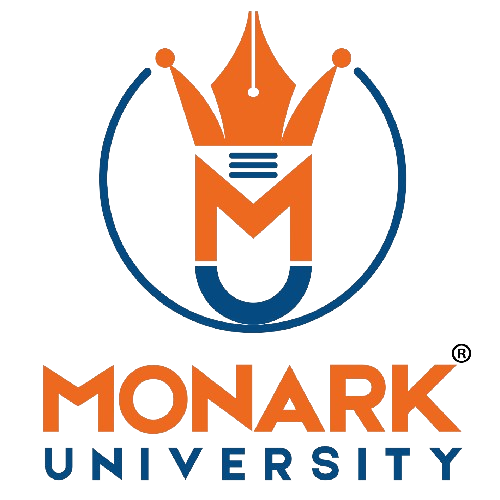Chemistry
The B.Sc. (Hons.) in Chemistry at Monark University offers a rigorous and comprehensive curriculum that delves deep into the core areas of chemistry, including organic, inorganic, physical, and analytical chemistry. With a strong emphasis on both theoretical knowledge and practical laboratory skills, the program equips students to tackle complex chemical problems and conduct cutting-edge research. The experienced faculty and modern research facilities foster an engaging and dynamic learning environment, while the university’s holistic approach to education, including courses like 'Indian Culture and Skill Development,' ensures the overall development of students. This program prepares graduates for a wide range of careers in academia, industry, and research.
Program Outcomes
Demonstrate a thorough understanding of core concepts in organic, inorganic, physical, and analytical chemistry.
Gain hands-on experience with advanced laboratory techniques and equipment, developing practical skills in chemical analysis and experimentation.
Apply critical thinking to solve complex chemical problems, design experiments, and analyze results with scientific accuracy.
Conduct independent research, contributing new insights to the field of chemistry and staying abreast of emerging scientific trends.
Integrate interdisciplinary knowledge from fields like biology and physics to understand the broader context of chemical phenomena.
Effectively communicate scientific ideas, research outcomes, and technical details through written reports, oral presentations, and collaborative discussions.
Adhere to ethical practices in scientific research, focusing on safety, sustainability, and responsible use of resources.
Prepare for advanced studies in chemistry or related fields, or pursue careers in research, industry, education, and other sectors requiring specialized chemical expertise.
Career Opportunities
Research Chemist
Analytical Chemist
Quality Control Analyst
Environmental Chemist
Pharmaceutical Chemist
Laboratory Technician
Course Details
Course Duration
4 Years (8 Semesters) – Multiple Entry & Multiple Exit Enabled
Eligibility Criteria
Completion of 10+2 or equivalent examination with a minimum of 50% marks in aggregate.Must have studied Chemistry as a core subject in the 10+2 level.A background in Physics, Mathematics, or Biology at the 10+2 level is preferred.For reserved category students, the eligibility may be subject to specific relaxation as per university guidelines.
Laboratories
Organic Chemistry Laboratory
Rotary Evaporator: For solvent removal and concentration of samples.
Polarimeter: For measuring optical rotation and studying chiral compounds.
Fume Hoods: Ensuring safe handling of volatile and hazardous chemicals.
Digital Melting Point Apparatus: For determining melting points of organic compounds.
Distillation Units: For purification and separation of liquid mixtures.
Thin Layer Chromatography (TLC) Setup: For monitoring reaction progress and purity testing.
Analytical Balances: For precise measurement of reagents.
Advanced Glassware Kits: Including condensers, separatory funnels, and round-bottom flasks for diverse organic synthesis procedures.
Inorganic Chemistry Laboratory
Flame Photometer: Measures the concentration of metal ions based on the intensity of flame color produced during the analysis.
Centrifuge: Used for separating components of a sample based on density, often applied in inorganic synthesis and purification processes.
Fume Hood: Provides a safe working environment for handling volatile or toxic substances during inorganic chemistry experiments.
Conductivity Meter: Measures the electrical conductivity of solutions, useful in determining the concentration of ionic compounds.
Muffle Furnace: Used for high-temperature applications such as calcination and ash analysis of inorganic materials.
Refractometer: Measures the refractive index of liquids or solids, which is essential for characterizing inorganic substances.
Titration Setup: Includes burettes, pipettes, and indicators for performing acid-base or redox titrations with inorganic compounds.
Physical Chemistry Laboratory
pH Meter: Essential for measuring the acidity or alkalinity of solutions with high precision.
Conductivity Meter: Measures the electrical conductivity of solutions, helping in the analysis of electrolyte solutions.
Rotary Evaporator: Used for efficient and gentle removal of solvents from samples by evaporation.
Polarimeter: Used to measure the optical rotation of optically active substances, crucial for stereochemistry studies.
Viscometer: Used to measure the viscosity of liquids, providing insights into their flow properties.
Refractometer: Measures the refractive index of liquids and solutions, useful in determining concentration and purity.
Analytical Chemistry Laboratory
pH Meter: For precise measurement of the acidity or alkalinity of a solution.
Microwave Digestion System: For sample digestion using microwave radiation, particularly for complex matrices in trace analysis.
Rotary Evaporator: Used for removing solvents from samples via evaporation under reduced pressure.
Centrifuge: For separating components in a mixture based on their density by spinning at high speeds.
Refractometer: Used to measure the refractive index of liquids, often used for purity testing.
